Paolini takes canny victory after gruelling Gent-Wevelgem
Veteran Italian seizes moment in finale
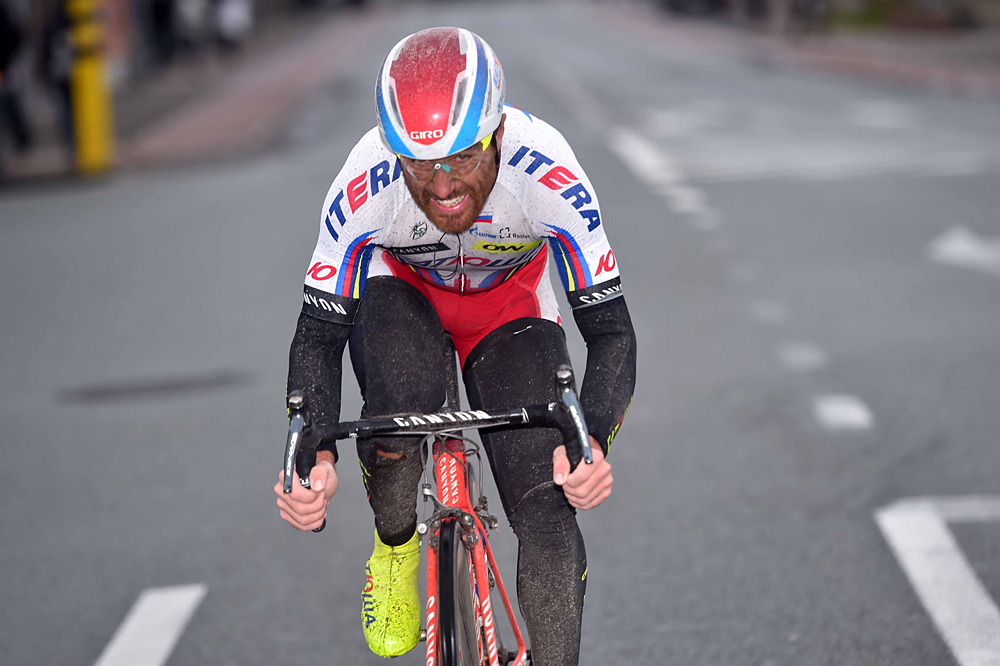
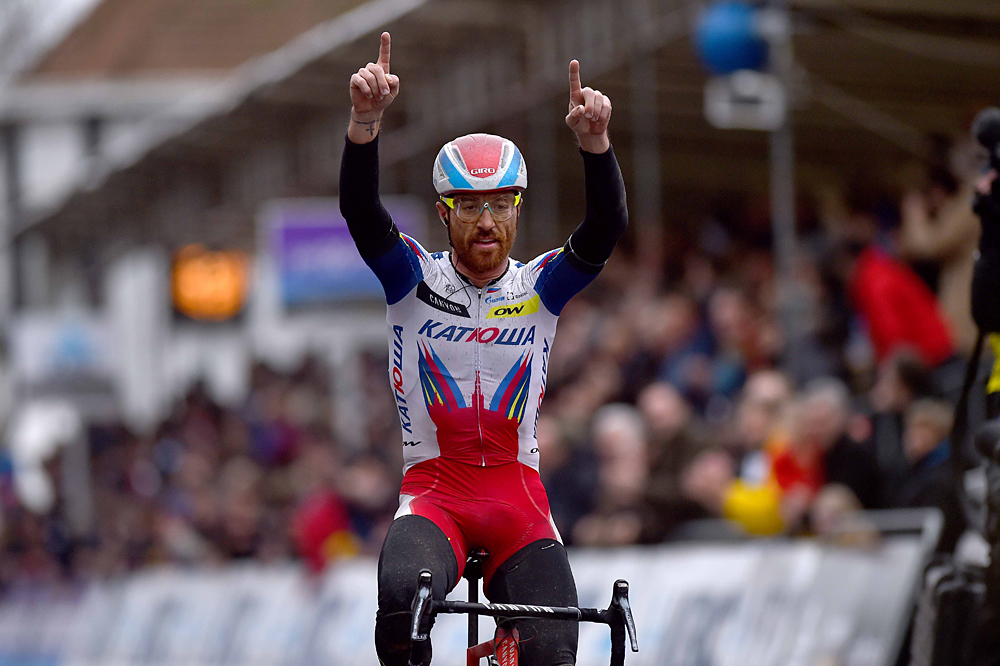
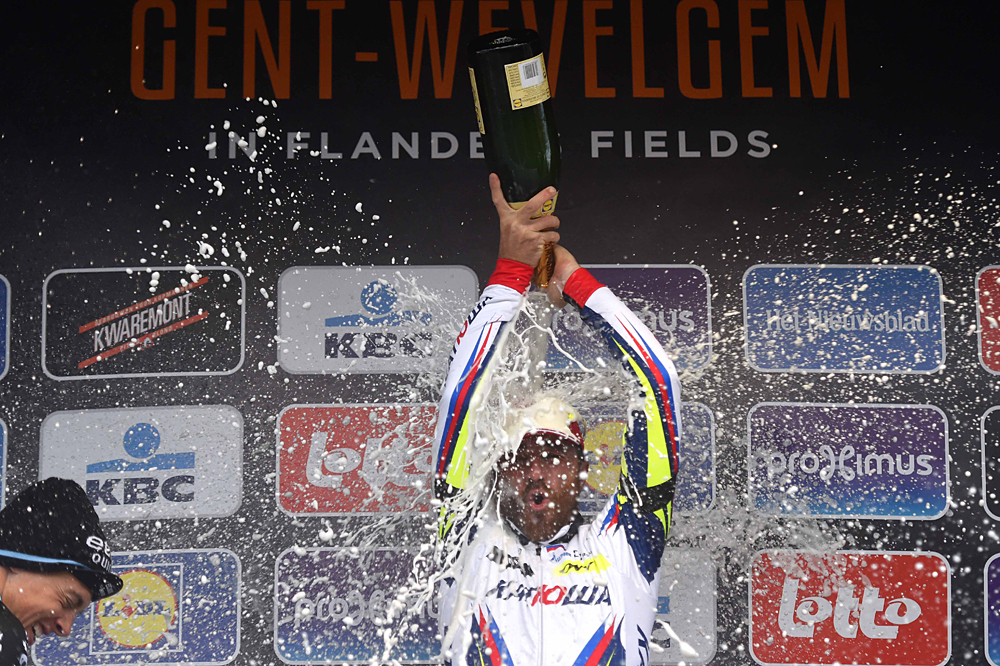
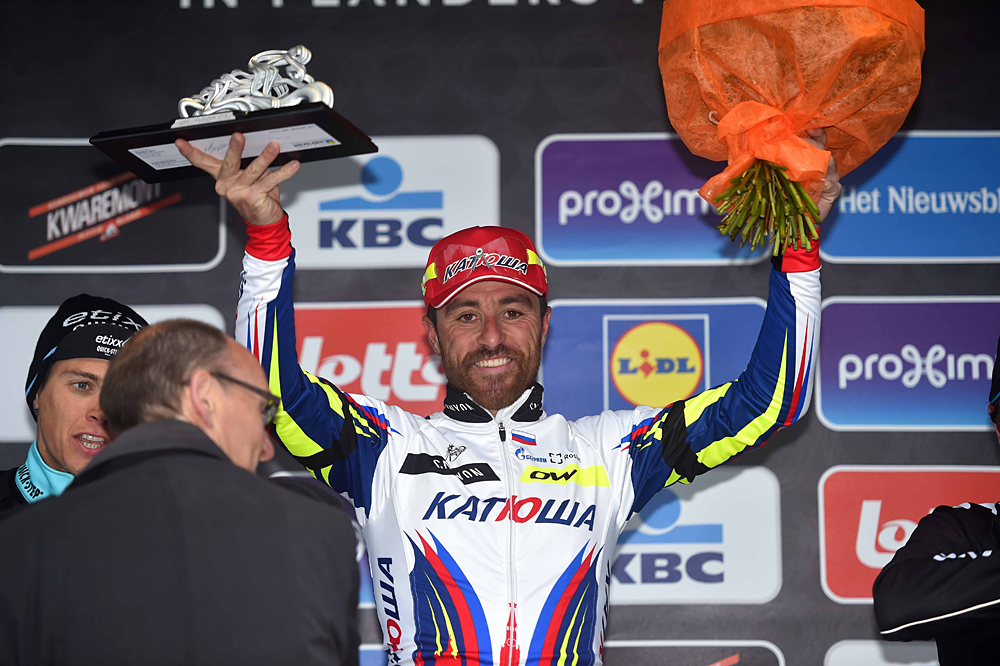
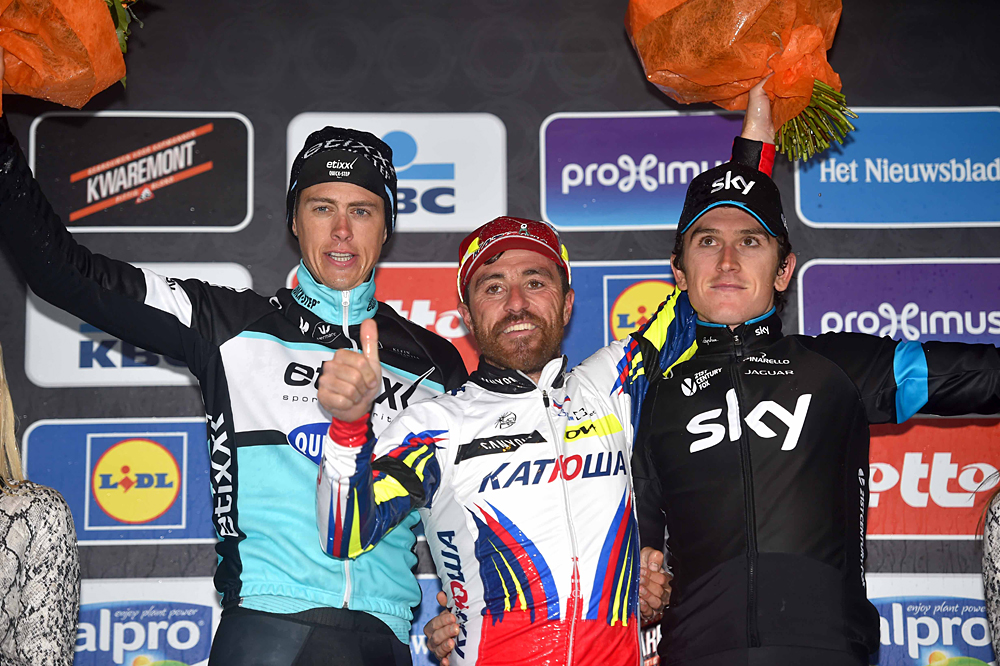
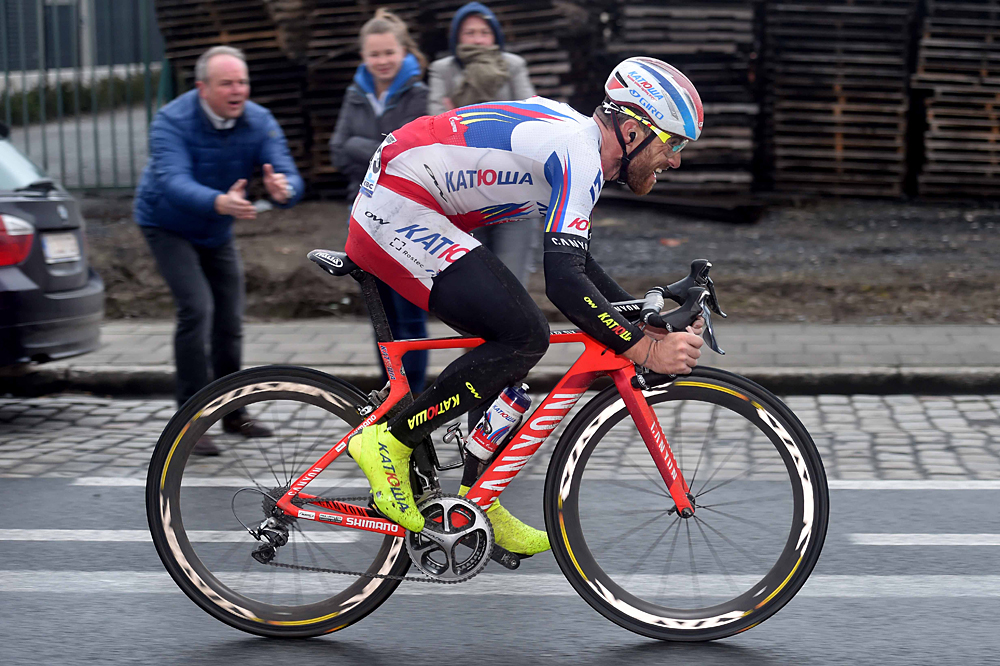
A little over six kilometres from home, Luca Paolini looked around at the ghastly crew left aboard the winning break at Gent-Wevelgem and saw only glazed and weary eyes, a day of storm-buffeted racing around West Flanders etched in their faces.
Reckoning their limbs to be as heavy as his own, the Katusha man launched a speculative attack. When he turned around, Paolini realised that he had opened a small gap that his five erstwhile companions would struggle to close, given that they had long since abandoned the idea of rowing in the same direction.
“I looked at everyone in the face, and I saw we were all finished – alla frutta, as we say in Italian,” Paolini said. “I knew that I wasn’t going to be the quickest in a sprint because I’m not really explosive anymore, so I made a sort of half attack to see who’d react. Once I found myself in front I made a more violent, seated attack, and that allowed me to get the gap that I held to finish. But I can assure you that those were the longest five or six kilometres: it seemed they’d never finish.”
By the time he entered the final kilometre, Paolini was aware that only mishap could deny him the biggest victory of his career and the second cobbled classic of an unexpected Indian summer that caught fire with his surprise win at Omloop Het Nieuwsblad in 2013. At 38 years of age, the bearded Paolini was the oldest rider in the winning move on Sunday and, as it turned out, the canniest. Little wonder that he pointed at his head and chest as he freewheeled across the line 11 seconds clear of Niki Terpstra (Etixx-QuickStep) and Geraint Thomas (Sky).
“I made the same gesture when I took the maglia rosa at the Giro d’Italia two years ago, because I think that when you win a race like that, you need head and heart as much as legs,” he explained.
Although wind and rain had been forecast all week, nobody quite anticipated just how difficult this edition of Gent-Wevelgem would prove to be, and through the crosswinds of the opening 150 kilometres, simply staying upright proved a challenge. Paolini fell twice, first in the crash that eliminated Mark Cavendish and then ahead of the second ascent of the Kemmelberg, but he kept his composure on each occasion.
“It was extreme, there was so much wind that you couldn’t even make echelons,” Paolini said. “I saw so many riders falling on the side of the road. I fell twice myself today, and I had to change bikes each time, but apart from that I rode well, without expending too much energy and I was able to move up.”
Get The Leadout Newsletter
The latest race content, interviews, features, reviews and expert buying guides, direct to your inbox!
Paolini began the day in the service of Alexander Kristoff and he was still loyally by the Norwegian’s side when the decisive break formed with a little under 70 kilometres to race. Soon afterwards, however, Kristoff gave Paolini his blessing to give chase alone, and – somehow – the Italian bridged across alone. “We came to get a result with Alexander but he told me that he wasn’t feeling great today and told me to ride my own race,” Paolini said of his startling solo effort.
The forcing of Niki Terpstra and Sep Vanmarcke on the second ascent of the Kemmelberg was enough to jettison Daniel Oss (BMC) from the group, and Paolini, too, was distanced towards the summit, but he maintained his sangfroid through that particularly emergency and latched back on halfway up the final ascent, the Monteberg.
“I suffered on the Kemmelberg because I was on my third bike of the day, and I think the pressure in the tyres was too high, so I wasn’t able to push it on the pavé,” Paolini said. “But I knew that I could still recover because there was an asphalt climb to come where I could make up the ground. I stayed calm, I didn’t panic and I got back on.”
To subscribe to the Cyclingnews video channel, click here
Italian considers World Championships in Richmond
Paolini announced his retirement from international duty after the 2013 World Championships in Florence, having served as Italy’s regista, or road captain, during his close friend – and former team leader – Paolo Bettini’s tenure as manager of the squadra azzurra.
There were frequent calls in the Italian press for the veteran to reprise that role ahead of last year’s Worlds in Ponferrada, but he rejected any overtures and instead he limited his involvement to serving as a mentor to the under-23 team. Paolini admitted that he would consider a return to the squad for this year’s Worlds in Richmond, but only if it fitted with the plans of his Katusha team – a rare cycling example of the club versus country conundrum so prevalent in football.
“I said farewell to the Italian national team after the Florence Worlds but I’m always in touch with the national coach Davide Cassani. Every now and then he asks me if I’ll do a final Worlds with him,” Paolini said. “I’ve said that I’ve taken on a huge responsibility with Katusha because two years ago they believed in me, and gave me a lot of support. But if I have a bit of rest after the Giro, and I go well at the Vuelta, then I could even say yes to the Worlds – but I’ll have to see with my team first what the programme is.”
Paolini will hope, too, that an appearance in Richmond doesn’t mark the swansong of his career, given that his contract with Katusha expires at the end of this season. The haul of WorldTour points from his Gent-Wevelgem victory will hardly harm his chances of a renewal.
“I don’t know if I’ll keep racing,” Paolini said. “My contract expires at the end of the year, so we’ll see. Today has certainly given me a bit of motivation to continue but we’ll have to see who still believes in me for another year or two.”

Barry Ryan was Head of Features at Cyclingnews. He has covered professional cycling since 2010, reporting from the Tour de France, Giro d’Italia and events from Argentina to Japan. His writing has appeared in The Independent, Procycling and Cycling Plus. He is the author of The Ascent: Sean Kelly, Stephen Roche and the Rise of Irish Cycling’s Golden Generation, published by Gill Books.